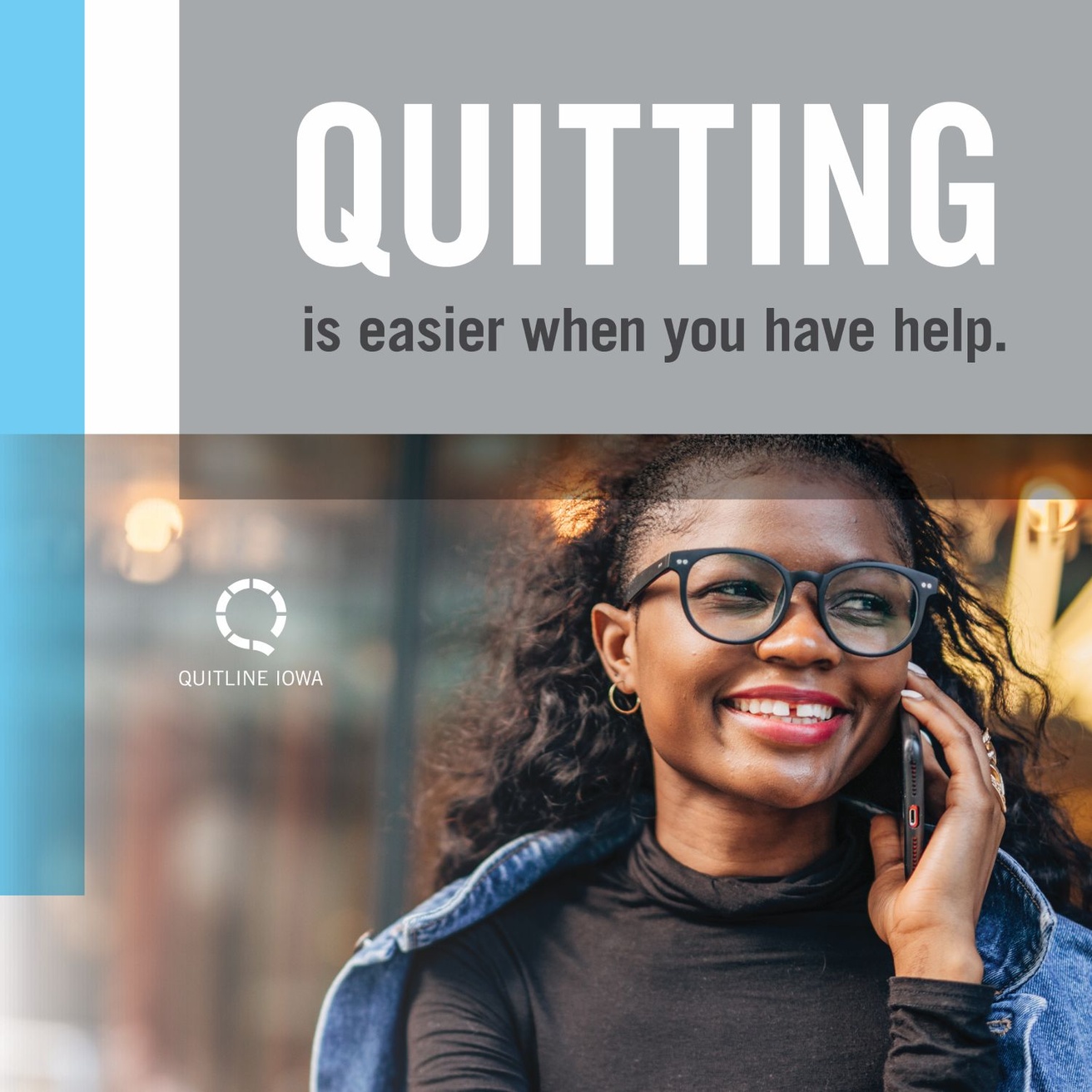
The Center’s core research project aims to work with young adults in Iowa’s micropolitan (midsized rural) areas, state officials, and community organizations to figure out how to connect young adults in these areas to Quitline Iowa. Tobacco Quitlines can help people quit smoking and using other nicotine and tobacco products. Yet, young adults often don’t use it when they think about quitting.
Team members:
- UIowa: Mark Vander Weg (lead) Aaron Seaman (lead), Shannon Lea Watkins, Daniel Sewell, Heidi Haines, Loulwa Soweid
- PRC-RH Students:
- Partners: One Iowa, Quitline Iowa
Project dates: 2024-Present
Funding sources: UI Prevention Research Center for Rural Health, funded by the Centers for Disease Control and Prevention- Prevention Research Centers.
Project tags: Nicotine and Tobacco & Tobacco Product Cessation, Young Adult Health, Community Engagement, Rural Micropolitan Health
Details
Description
Young adults who live in rural communities are disproportionately impacted by nicotine and tobacco product use. People who live in rural communities are more likely to get sick and to die early because of the diseases that tobacco use causes, like cancer, coronary heart disease, and respiratory disease. What’s more, the difference between tobacco’s impact in rural and other communities is getting worse.
There are resources available for people who want to quit using tobacco and nicotine products, like the Tobacco Quitlines. Even though these tools are available, young adults do not use them very often. Our objective for this Core Research Project is to increase the number of young adults in Iowa’s mid-sized rural communities who use the statewide Quitline services. That means figuring out creative ways to have young adults learn about Quitline Iowa and use it when they want to quit. We will design, conduct, and evaluate the project in partnership with an Advisory Board made up of real young adults living in rural communities and Iowa Health and Human Services (IA HHS), One Iowa (a statewide advocacy organization), and other community organizations.
Our project has three phases:
- Develop and test strategies for encouraging young adults to use the Quitline in two communities. We will put these strategies in an “Implementation Playbook.”
- Start using the Implementation Playbook across Iowa and evaluate how well it works.
- Share what we found with other organizations and rural communities in other states.
Resources, Media, and Publications: